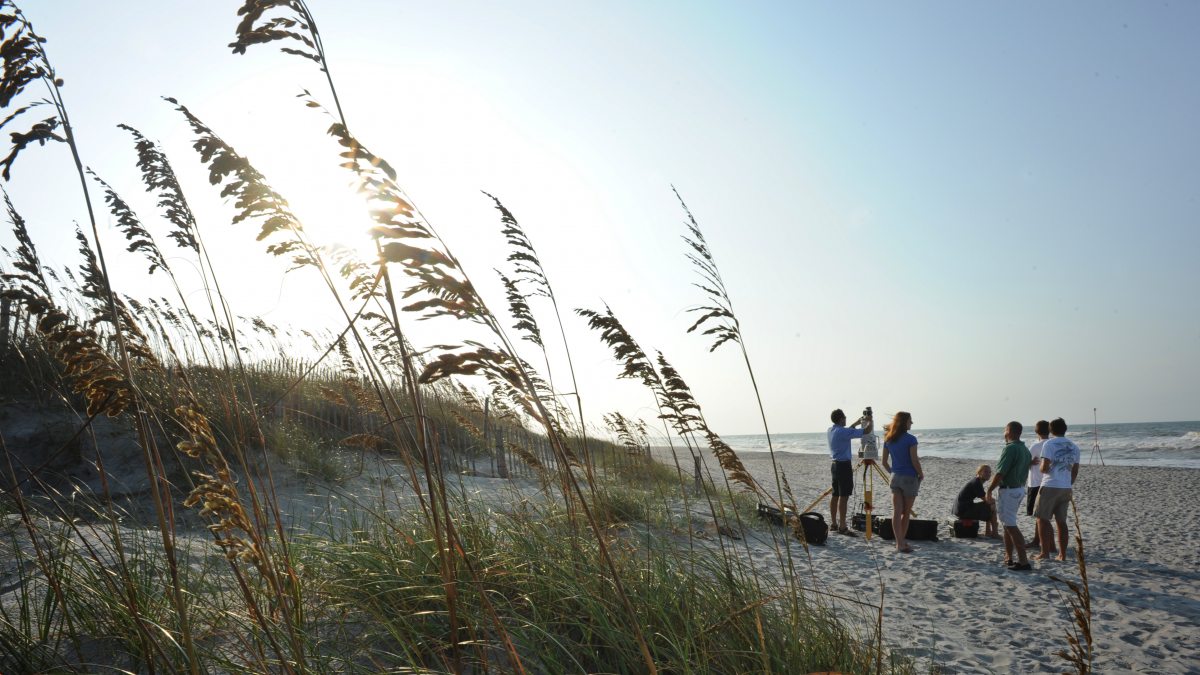New name, new emphasis, for environmental program at Carolina
A new interdisciplinary program in Environment, Ecology and Energy (E³P) will leverage the College’s strengths in natural sciences, social sciences and humanities to teach students how to best manage resources in an ever-changing world.

Greg Gangi started the UNC Clean Tech Summit five years ago to connect students with clean-tech thought leaders in academia, government and industry.
About 400 students attend the two-day, on-campus event each year, with students from 10 universities represented at last spring’s summit.
Gangi, who received his Ph.D. in ecology from UNC-Chapel Hill in 1999, joined the faculty in 2000. Today he serves dual roles as teaching associate professor in the Environment, Ecology and Energy Program and associate director for education at the UNC Institute for the Environment. He has led students on environmental field studies around the world, and last spring was awarded the C. Knox Massey Distinguished Service Award for, as one colleague noted, “being an agent of institutional change at Carolina.”
Gangi is excited about the growing opportunities to connect students to careers in the clean-tech industry as part of the new Environment, Ecology and Energy Program (nicknamed E³P), which launched in July after a lengthy strategic planning process to enhance and expand the pre-existing curriculum in environment and ecology.
“There is a huge clean tech presence in the Research Triangle Park area,” Gangi said. “Students should see RTP as a potential career destination — they no longer have to go to New York, D.C. or California. What I hear from students today is: ‘I want a career with impact.’”
Carolina students are creative and passionate and want to save the world, said Jaye Cable, a marine scientist who will chair the new program, “and we want to help them do that.”
“We are teaching them how to think outside the box through multiple disciplines and to consider different perspectives and find new paths,” she said.
Student interest in environmental science at both the undergraduate and graduate levels has more than doubled in the past decade, Cable added. In the past environmental science majors might have wound up at a natural resources department, but today’s students are pursuing diverse paths, from working at energy startups to writing for Outside magazine.
“They’re going into graduate programs in analytics, biogeochemistry, journalism, public policy and more,” she said. “They see these pathways, and our job is to help them get there.”
The new program will focus on interdisciplinary research challenges such as coastal and hazards resilience, natural resources, biodiversity and ecology, and environment and development. It will emphasize experiential education opportunities such as service learning, study abroad and field site work. Students can currently participate in field sites offered in partnership with the Institute for the Environment in the Triangle, Outer Banks, Morehead City and Highlands in North Carolina, as well as established programs abroad in Thailand and the Galapagos. International field studies have also been conducted in Denmark, Germany, Sweden and Siberia. Closer to home, students have undertaken research in the Sierra Nevada mountains and the U.S. Virgin Islands.




